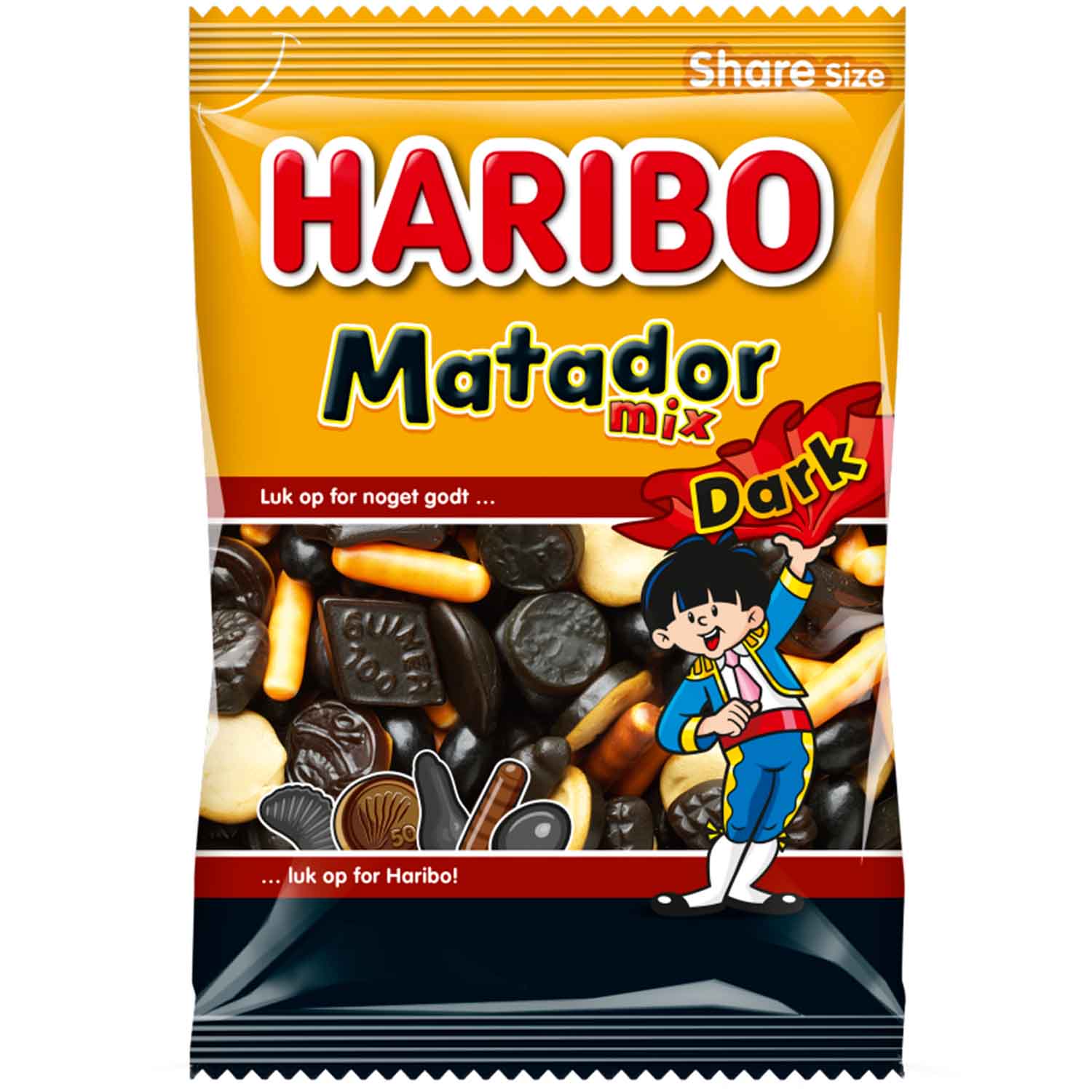Haribo Palestine: The Sweet Revolution In The Middle East
When you think of Haribo, the first thing that comes to mind is probably those gummy bears that have been a childhood staple for generations. But did you know that Haribo has been making waves in Palestine? Yes, that Haribo. The candy giant that’s famous for its "Kids and grown-ups love it so" slogan has found a new home in the heart of the Middle East. And it’s not just about candy—it’s about culture, connection, and a whole lot of sweetness.
Haribo’s journey to Palestine isn’t just a business story; it’s a tale of how a global brand can adapt to local tastes while staying true to its roots. The candy market in Palestine is growing, and Haribo is at the forefront of this sweet revolution. From gummy bears to licorice sticks, Haribo products are becoming a favorite among Palestinians, especially the younger generation who crave a taste of the world beyond their borders.
But it’s not all about the candy. Haribo’s presence in Palestine is also about creating jobs, supporting local economies, and bringing a bit of joy to people’s lives. In a region where tensions often dominate the headlines, Haribo is quietly making a difference, one gummy bear at a time. So, let’s dive into the world of Haribo in Palestine and see why this sweet story is worth telling.
- Movie2kto Your Ultimate Movie Streaming Haven
- Watch2movie Your Ultimate Streaming Haven For Movie Enthusiasts
Table of Contents
- Haribo’s Introduction to Palestine
- Impact on the Local Market
- Cultural Significance of Haribo in Palestine
- Consumer Preferences and Trends
- Economic Benefits for Palestine
- Challenges Faced by Haribo in the Region
- Future Prospects and Expansion Plans
- Environmental Efforts by Haribo
- Health and Nutrition Concerns
- Conclusion: Why Haribo Matters in Palestine
Haribo’s Introduction to Palestine
Haribo’s entry into Palestine wasn’t just a random decision. The company saw an opportunity to expand its market reach while also contributing to the local economy. In 2015, Haribo officially launched its products in the Palestinian territories, bringing with it a range of candies that quickly became a hit among consumers. The initial response was overwhelming, with locals lining up to try the famous gummy bears and other treats.
What made Haribo stand out in Palestine was its commitment to quality and authenticity. Unlike some companies that might water down their products for new markets, Haribo maintained its signature taste and texture, ensuring that Palestinians could enjoy the same quality as the rest of the world. This dedication to excellence quickly earned Haribo a loyal customer base.
Why Haribo Chose Palestine?
There were several reasons why Haribo decided to enter the Palestinian market. First, there was a growing demand for high-quality sweets and snacks. Second, the region’s young population, eager to try new flavors and experiences, made it an ideal market for Haribo’s innovative products. Lastly, Haribo saw an opportunity to create jobs and support local businesses, which aligned with its corporate social responsibility goals.
- Movies4ubid Your Ultimate Destination For Streaming Movies
- Solarmoviesc Your Ultimate Destination For Streaming Movies Online
Impact on the Local Market
Haribo’s arrival in Palestine had a significant impact on the local candy market. Before Haribo, the market was dominated by local and regional brands, many of which struggled to compete with international giants. Haribo’s entry raised the bar, pushing local producers to improve their quality and diversify their offerings.
One of the most noticeable effects of Haribo’s presence was the increase in consumer awareness about candy quality. Palestinians, who were once satisfied with basic sweets, now demand more variety, better taste, and higher standards. This shift in consumer behavior has benefited not only Haribo but also other players in the market who have had to step up their game.
How Haribo Changed the Game
Haribo didn’t just bring its products to Palestine; it brought a whole new mindset. By setting a benchmark for quality and innovation, Haribo forced local producers to rethink their strategies. Some even started collaborating with Haribo, learning from its best practices and incorporating new techniques into their production processes.
Cultural Significance of Haribo in Palestine
For Palestinians, Haribo represents more than just candy. It’s a symbol of globalization, a taste of the outside world in a region that often feels isolated. Haribo’s products have become a cultural phenomenon, with young people sharing photos of their Haribo purchases on social media and using them as a way to connect with others.
But it’s not just the younger generation that’s embracing Haribo. Older Palestinians, who might not be as familiar with global brands, are also discovering the joy of Haribo’s candies. For them, it’s a chance to experience something new and exciting, a break from the routine of everyday life.
The Role of Social Media
Social media has played a crucial role in Haribo’s success in Palestine. Platforms like Instagram and Facebook have allowed Haribo to reach a wider audience and engage with consumers in a more personal way. Through contests, giveaways, and interactive content, Haribo has built a strong community of fans who eagerly anticipate new product launches and promotions.
Consumer Preferences and Trends
Understanding consumer preferences is key to success in any market, and Haribo has done its homework. Research shows that Palestinians have a particular fondness for fruity flavors, which is why Haribo’s gummy bears and other fruit-flavored candies are so popular. Additionally, the affordability of Haribo products makes them accessible to a wide range of consumers, from children to adults.
Another trend that Haribo has capitalized on is the growing interest in healthy snacks. While Haribo’s candies are not exactly health food, the company has introduced sugar-free and reduced-sugar options that appeal to health-conscious consumers. This move has helped Haribo expand its customer base and stay relevant in a rapidly changing market.
Popular Haribo Products in Palestine
- Goldbears (gummy bears)
- Starmix (assorted gummies)
- Trolli (fruit-flavored gummies)
- Happy Cola (chewy cola-flavored candies)
Economic Benefits for Palestine
Haribo’s presence in Palestine isn’t just about selling candy; it’s about creating economic opportunities. The company has invested in local infrastructure, built partnerships with local suppliers, and created jobs for Palestinians. This economic impact is significant, especially in a region where unemployment rates are high and economic growth is slow.
By sourcing materials locally and collaborating with Palestinian businesses, Haribo is helping to build a more robust economy. The company’s commitment to sustainability and ethical practices also ensures that its operations benefit the community in the long term.
Job Creation and Community Support
Haribo has created hundreds of jobs in Palestine, both directly and indirectly. From factory workers to sales representatives, the company has provided employment opportunities for many Palestinians. Additionally, Haribo supports community initiatives, such as educational programs and youth development projects, further enhancing its positive impact on the region.
Challenges Faced by Haribo in the Region
Despite its success, Haribo faces several challenges in Palestine. The political situation in the region can be unpredictable, affecting supply chains and logistics. Additionally, the company must navigate cultural sensitivities and ensure that its marketing strategies are appropriate for the local context.
Another challenge is competition from local and regional brands that are trying to replicate Haribo’s success. To stay ahead, Haribo must continue to innovate and differentiate itself from the competition. This means investing in research and development, introducing new products, and maintaining its high standards of quality.
Strategies for Overcoming Challenges
Haribo has implemented several strategies to address these challenges. For example, the company works closely with local partners to ensure smooth operations and minimize disruptions. It also invests in employee training and development, empowering its workforce to meet the demands of a dynamic market.
Future Prospects and Expansion Plans
Looking ahead, Haribo has ambitious plans for its operations in Palestine. The company aims to expand its product range, introduce new flavors, and increase its market share. Haribo also plans to deepen its commitment to sustainability and corporate social responsibility, ensuring that its presence in Palestine has a lasting positive impact.
One of the most exciting developments on the horizon is Haribo’s focus on digital innovation. By leveraging technology, the company hopes to enhance its customer experience, streamline operations, and reach even more consumers in Palestine and beyond.
Innovation and Technology
Haribo is exploring new ways to use technology to improve its products and services. From smart packaging that provides consumers with additional information to online platforms that make it easier to purchase Haribo products, the company is committed to staying at the forefront of innovation.
Environmental Efforts by Haribo
Haribo is aware of its environmental responsibilities and is taking steps to reduce its carbon footprint. The company has implemented sustainable practices in its production processes, such as reducing waste and using eco-friendly materials. Haribo also encourages its consumers to recycle and reuse packaging, further promoting environmental awareness.
In Palestine, Haribo has partnered with local organizations to promote sustainability and educate the community about the importance of protecting the environment. These efforts have resonated with consumers, who appreciate Haribo’s commitment to making a positive impact.
Sustainability Initiatives
Some of Haribo’s key sustainability initiatives include:
- Reducing plastic usage in packaging
- Implementing energy-efficient production processes
- Supporting local recycling programs
Health and Nutrition Concerns
While Haribo’s candies are undeniably delicious, there are concerns about their nutritional value. High sugar content and artificial additives have raised questions about the health implications of consuming Haribo products regularly. To address these concerns, Haribo has introduced healthier alternatives and emphasized moderation in consumption.
Haribo also works with nutritionists and health experts to ensure that its products meet certain standards and provide consumers with the information they need to make informed choices. By being transparent about its ingredients and nutritional content, Haribo aims to build trust with its customers.
Healthy Choices
Haribo offers several healthier options, including:
- Sugar-free gummies
- Reduced-sugar candies
- Natural flavor options
Conclusion: Why Haribo Matters in Palestine
Haribo’s presence in Palestine is more than just a business success story; it’s a testament to the power of global brands to make a positive impact in local communities. By bringing high-quality products, creating jobs, and supporting sustainability, Haribo has become an integral part of the Palestinian economy and culture.
As Haribo continues to grow and innovate, its commitment to excellence and responsibility will undoubtedly shape the future of the candy market in Palestine. For consumers, this means more choices, better quality, and a sweet reminder that even in challenging times, there’s always room for a little joy.
So, the next time you bite into a Haribo gummy bear, remember that it’s not just candy—it’s a symbol of hope, connection, and progress in a region that needs it most. And hey, if you’re in Palestine, don’t forget to share the love—because sharing Haribo is like sharing a piece of happiness!
- Sites Like Solarmovie Your Ultimate Guide To Legal Streaming Platforms
- Movieorca Alternatives Your Ultimate Guide To Streaming Movies Online

Extras Haribo

Haribo Matador mix Dark 350 g DK10029

Haribo Bear Gummy Candies On Haribo Brand Pack Editorial Image